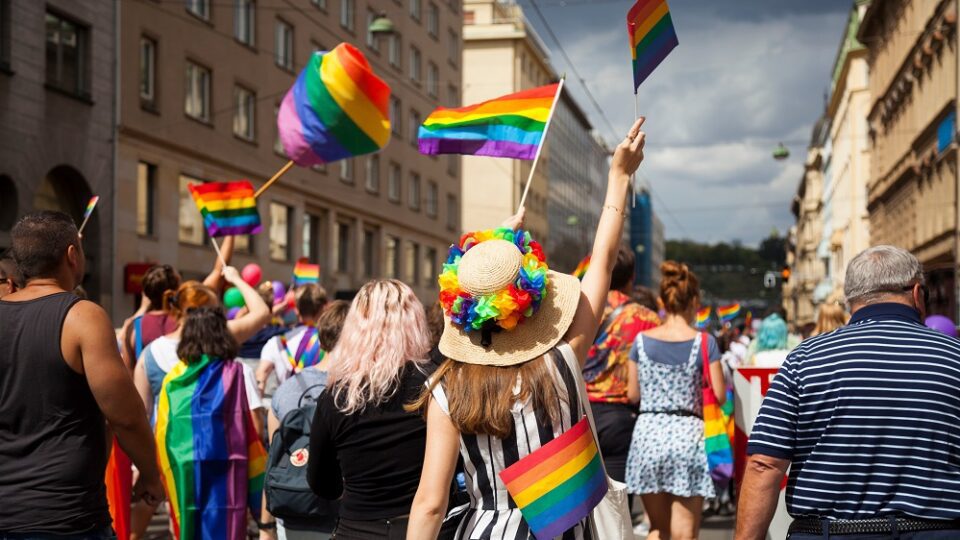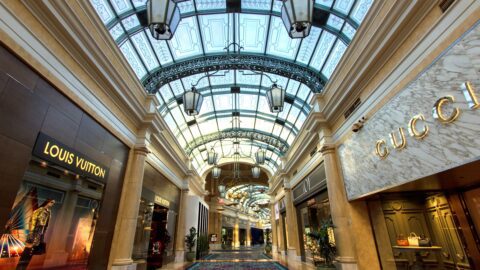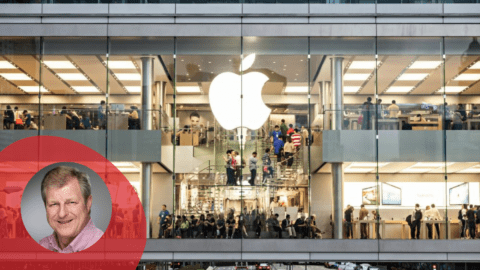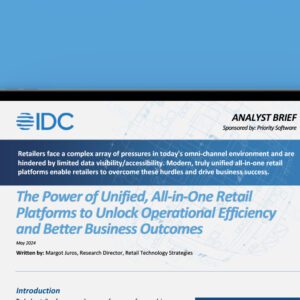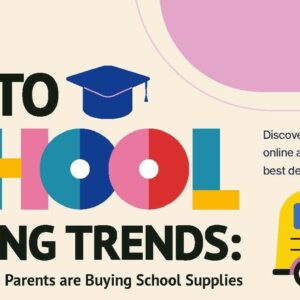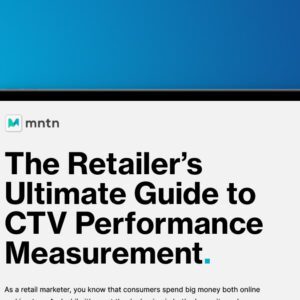You may recall that last year, Target caught a lot of flak from LGBTQ+ groups for moving (and in some cases removing altogether) Pride-themed merchandise from prominent locations in its stores. The retailer cited threats to the safety and well-being of its employees after “customers knocked down Pride displays in some stores, angrily approached workers and posted threatening videos on social media from inside the stores,” as reported by the AP.
Nevertheless, Target was chastised for its actions by more than 100 LGBTQ advocacy organizations, including the Human Rights Campaign (HRC), GLAAD, GLSEN and Family Equality. It was a strong sign that these groups, as well as individual consumers, are frustrated with “rainbow-washing,” the LGBTQ+ equivalent of “greenwashing” that sees companies pay lip service to the community but seemingly abandon it when that support becomes problematic.
Target CEO Brian Cornell tried to defend the decision and mollify critics in remarks made in August 2023, noting the retailer’s long history of supporting LGBTQ+ people and causes but remaining noncommittal about including Pride-themed merchandise in its assortment.
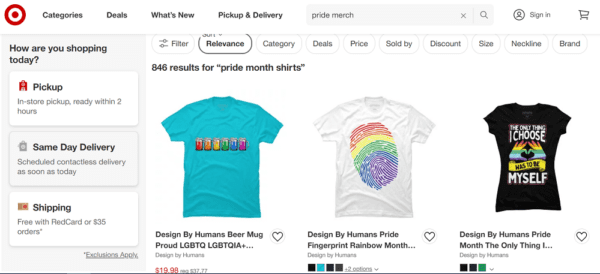
Where does this leave retailers wondering whether to include Pride-related products in their assortment, particularly during Pride Month in June? Retail TouchPoints spoke to Jim Fielding, a Partner at Archer Gray and former retail executive who has written the book All Pride, No Ego: A Queer Executive’s Journey to Living and Leading Authentically, for his take.
Advertisement
Retail TouchPoints (RTP): What do you think of the way Target handled the controversy over Pride merchandise in 2023?
Jim Fielding: I didn’t like their reaction of pulling or moving product; I felt they were kowtowing to the few loud far-right voices in the room. Target had been supportive of our community for over 25 years and I know it also has supported its own [LGBTQ+] communities and employees, but I thought their reaction to the negative press was an overreaction. By the way, since tearing down displays is a misdemeanor, those people should have been arrested or ushered quickly out of the store. That’s where I got a little frustrated with their reaction; I felt that there were other remedies. But when I tried to defend Target, I got a lot of backlash myself on social media.
RTP: What does a retailer or brand gain by acknowledging LGBTQ+ people and Pride Month? Are there bottom-line benefits?
Fielding: There are both qualitative and quantitative reasons to support LGBTQ+ people. Qualitatively, if as part of a company’s mission they are committed to celebrating marginalized communities — and that can be [among their] customers, employees, suppliers and the communities they serve — it serves as a very positive affirmation that [the brand] supports them as an ally.
Quantitatively, there’s been a ton of research showing that queer and LGBTQ+ families have economic power, and they like to buy things that represent our history and celebrate our month. And interestingly, May and June is often an “in-between” season that’s a time for [inventory] clearance, and so to have fresh product in your store that has an authentic story, it certainly makes sense for a retailer to do it — if they’re doing it for the right reasons.
If they’re doing it solely for economic reasons, as a queer person I’m not interested, because I’m looking for support on an ongoing basis. There’s been a lot of “rainbow-washing,” and as a queer retail executive I would ask: Is this really authentic? Do you really support the community? Do you know what the rainbow represents, and why Pride is in June [the anniversary of the Stonewall riots in June 1969 that kicked off the modern gay rights movement]? Many people saw [selling Pride merchandise] as just a business opportunity.
RTP: What would you say to a retailer that believes carrying Pride-themed merchandise is simply too controversial and that it’s better to just not do anything?
Fielding: I would ask them whether they have considered their employee and supplier base, and ask what message it sends to your own team by not celebrating Pride. Also, there are ways to support our community without carrying a Pride collection: a donation to HRC, GLAAD, GLSEN or The Trevor Project; a celebration for employees; having an employee group participate in a Pride parade. I would say to these leaders: if you don’t want to do this in your store, think about other ways you can show your support.
RTP: What advice would you give on making a brand’s Pride celebration as successful as possible?
Fielding: First, do that fearless self-inventory. Are you in this on an annual or ongoing basis? Do you have an LGBTQ+ employee resource group? What kind of representation do you have in different levels of management — do you have a queer executive willing to sponsor the group? Essentially, what’s your motivation?
In some ways, it’s the more the merrier, because representation matters, but I want it to be genuine and authentic — and I don’t want [the companies] to feel forced to do, or not do, something. But if you’re going to do it, do it.
Also, I would ask if they are prepared for any backlash: Have you thought about what your response is going to be if there’s a negative article or protests at your stores? I’m a former retail CEO, and if I was doing this and I knew there was a potential for blowback — that’s why you have a PR agency or communications department. In our current environment and our divided nation, it should not be a surprise that there are protestors. Be prepared, and don’t let it be a surprise. Target looked a little reactive, and I think you can be proactive by preparing for the worst.
RTP: What are some examples you’ve seen of brands that have shown real support for LGBTQ+ people and groups?
Fielding: Starbucks has been hugely vocal in support of the community; they even do Pride-flavored lattes. Levi’s has done some really nice representation over the years; the fact that they’re based in San Francisco helps. The Gap and Old Navy have always been supportive, and even Nike — they always have some Pride-related shoes or maybe tie-ins with one of their athletes.
While most of the companies I’m naming are big multinationals, the other thing that’s great is to see mom-and-pop specialty stores, old-fashioned types of retailers in Atlanta, where I now live, showing support for (and by) LGBTQ+-owned businesses.
RTP: What’s your personal favorite part of Pride month and Pride celebrations?
Fielding: I’m a people person, and what I love about Pride is being in community and with community. I love being in and going to parades, and the festivals that happen around them, the music and the booths. In many places it almost feels like a state fair, and for me, especially after the pandemic, the feeling of seeing people who look and feel like me or are allies is great.
I also love revisiting the history and educating the younger generation that Pride isn’t just about dressing up and dancing on a stage. It’s our job as [LGBTQ+] elders to remind them what Stonewall represents in the long arc of history. Let’s talk openly about the AIDS epidemic and what it was like to live through that. We lost a lot of talented people, a whole generation of artists, dancers, performers and leaders. It’s about where we are and how far we’ve come, but also honoring our past.
On tour [promoting my book], I’ve been going to a lot of universities and even high schools, and when someone says to me that they’re gender non-binary — well, you and I remember a time when Ellen DeGeneres didn’t exist [as a lesbian], and how big a deal it was when she came out in 1997 both personally and on her TV show — there was the Time magazine cover with the headline ‘Yep, I’m gay.’
I don’t want to be on a soapbox, but I do want to expose [younger people] to this history. That’s what Pride is about — it’s not about a sweatshirt with a rainbow, it’s what the rainbow represents. We need to use our platforms to educate.



